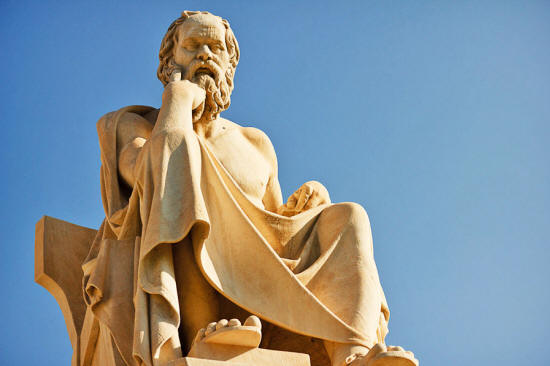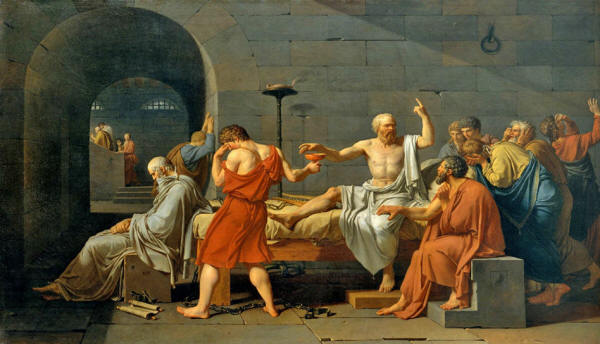|
Around the world, people of all ages are finding reason to be wary of democratic government.
While the western world places a high value on democracy today, this wasn't always the case. Some of the greatest minds in the history of western civilization had strong critiques of democracy, critiques that we would be idiots to ignore.
At one point he asks his associate, Adeimantus,
After the captain is selected as the obvious choice, Socrates then extends the metaphor to the state, asking why we would let just anybody try to manage the ship of state.
He then goes on to propose a totalitarian regime as the ideal state, where the rulers have all been educated in ruling for decades before taking absolute power.
He praised Spartan monarchy as being well managed, and in several dialogues about the virtues he laments that so few people have them and how even fewer people are capable of understanding that.
It is doubtless that he didn't consider the general population as smart enough to manage things.
This is not the only criticism of the intelligence of the voting population we have from the cradle of democracy. In the later parts of the Republic, Plato suggests that democracy is one of the later stages in the decline of the ideal state. One which is so bad that people ultimately cry out for a dictator to save them from it.
This idea was big for Plato, democracy would lead to tyrants.
Aristotle, for his part, listed democracy as the failed version of rule by the multitudes.
"Timocracy", rule by the propertied class or even just a more constitutional form of republican government was the ideal kind of rule by the many, in his mind. He would have seen Athens as an ever-decaying city, moving away from its original timocratic constitution as laid out by Solon.
The idea that democracy is fundamentally flawed even had sponsors in later, more liberal, thinkers.
Voltaire, who supported all of the liberal freedoms of speech and religion, told Catharine the Great of Russia that,
His understanding of liberalism was separated almost completely from democracy.
Now, it is important to understand that the democracy in Athens was much different than the kind we have today.
Athens was much closer to a direct democracy than most of us would be comfortable with.
Socrates himself held office in this way once, and witnessed what amounted to an angry mob illegally putting generals to death on his watch. Then, of course, a jury decided by a slim majority to put him to death on flimsy charges.
Plato tells us that a mere 30 votes, out of a jury of 500, killed him.
The Death of Socrates
But, why do the critiques still matter
if we don't have Athenian Democracy?
Socrates was worried about the problems posed by an uneducated and easily lead population having power over the state. A problem which continues to trouble thinkers like Richard Dawkins.
In the United States voters can be a little less than informed about what they are voting for.
Jimmy Kimmel shows us how people don't know much about Obamacare, and the results of the lack of information voters have is demonstrably negative for them.
These facts,
combined the power of the offices in the hands of the voting public,
would make Socrates reach for the hemlock.
Thus spoke the anti-democratic Socrates...
Education is the 'best' hope for a democracy. A population which understands the traits needed in a leader, knows the difference between a con artist and a legitimate leader, and knows which path forward to take is the difference between an effective democracy and Socrates' nightmare.
While in our
democracy the typical voter doesn't need to worry about being placed
in a position of power by lottery, they do need to understand enough
to select the 'right' person to have in power in their stead.
While the idea that,
...may still ring true, improving the education of the average voter weakens that argument.
Any government is only as good as its rulers...
In a democracy, this means that the general population must be properly educated to rule themselves.
|



